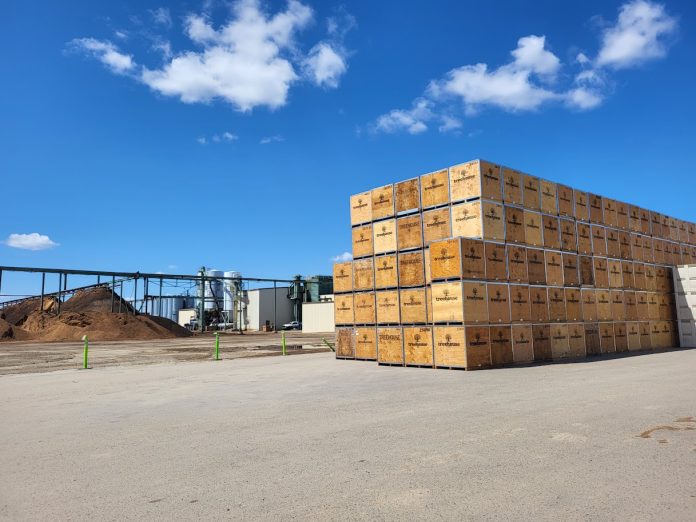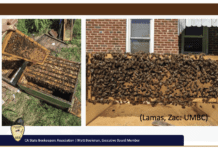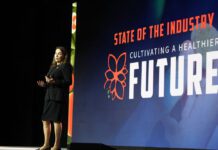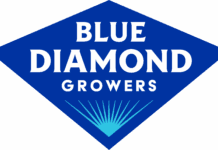Since becoming CEO of Treehouse California Almonds last November, Mauro Trevisani has set out to transform the 40-year-old almond company into what he calls “an industry powerhouse.”
Over the next five years, says the Brazilian-born executive, the almond company will grow its volume by 50% from its current annual supply of over 100 million pounds. Already selling a variety of almond ingredients to customers in 50 countries, Treehouse will expand into more value-added products. What’s more, Trevisani is committed to making Treehouse the No. 1 supplier to almond customers worldwide.
“Product development, innovation, using sustainability to bring products to consumers with a focus on health and nutrition, that’s the way we’re moving,” he said.
Those are ambitious goals for a CEO who’s new to the almond industry. But, for more than 20 years, Trevisani has been managing large public corporations as well as small private and family-owned companies in Latin America, the U.S. and Canada. He’s learned what it takes to run a company successfully.
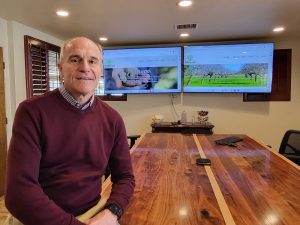
“Business is business everywhere,” he said. “You open your toolbox, you learn the dynamics, and then you apply what you know.”
Trevisani took over his new CEO position from Jonathan Meyer, who had led Treehouse since 2014 and remains on its board of directors. The company operates two almond processing facilities north of Bakersfield, one in Earlimart and the other in Delano. Some 65% of its volume is exported as almonds and almond ingredients for the baking, snack and confectionary industries. At peak season, the almond handler employs roughly 250 people.
Before coming to Treehouse, Trevisani served as vice president and general manager of Griffith Foods. The Illinois-based company specializes in food ingredients for global and regional food companies. His experience also includes executive roles in food and beverage operations at Tate & Lyle in Chicago. Earlier, he spent four years as chief operating officer for Andes Chemical Corp. in Miami, Fla.
Trevisani received an MBA in marketing and finance from the University of Pittsburgh. He also holds a Green Belt certification in Six Sigma, which focuses on process improvement.
West Coast Nut recently spoke with Trevisani about his plans for Treehouse, how he and his team will achieve their ambitious goals, and the New Hope Regeneration and Sustainability Award the company won in March 2023.
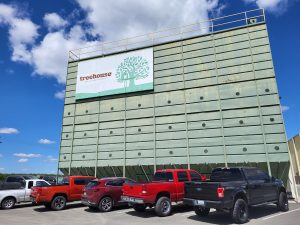
Q. How would you describe Treehouse California Almonds?
We’re a company with a purpose, which is to be the No. 1 almond ingredient supplier, in different formats, not only domestically but also internationally. Also, we care, we strive, we supply. We have a “why.” Most companies have a “what”; “What do you do? We supply almonds.” But I like to manage with an emphasis on the “why.” Our why is we care about our people, our customers, our growers and the planet. We strive to be the best company in operational excellence, and, by the way, we supply almonds. That’s the way we operate.
Q. What differentiates Treehouse from your competitors?
We have a grower network that is small but made up of some of the best almond producers in the world. Why is this important? To control quality, sustainability and traceability, which are important to consumers and to our business. We manage the company based on “People, Planet and Prosperity.” Operational safety and food safety are among our values; we never put our people, customers and communities at risk. When we talk about prosperity, it’s not only for the shareholders but for employees and their families too. Treehouse takes care of 1,000 to 1,200 people when you add in families.

Q. What are the one or two most important things you’ve done in your first five months at Treehouse Almonds?
One is just telling people why we’re moving to this powerhouse goal. Explaining we’re looking at managing this through safety and food safety for people, planet, prosperity. I have emphasized communicating with the team, understanding them. The most important asset of any company is people. I could go to the board and justify equipment (a roaster, a blancher, a blender), show them a return on investment, and boom. But people, you don’t buy; you win them over. So that’s the first important thing. But also, we’ve implemented five guiding principles for moving forward.
Q. What are those principles?
One is people, with a cultural add, which is different from cultural fit. Cultural add is when you bring in a certain capability that you don’t have. For example, bringing in human resources that we didn’t have before and need now as we get bigger and bigger. Or bringing in your first food scientist for product development.
The second one is transformation. How are we going to transform the company to provide more value-added, more engineered, tailor-made, customized products? But transformation is not only for the company but also for us as people.
The third is operational excellence, not only at the factory and manufacturing level but also achieving state of the art from marketing to sales to finance, operations, admin, everything.
The fourth principle, which the company was very good at before I arrived, is collaboration. How we collaborate with each other internally and externally is key to success.
And the last is delivering on our promises, delivering results.
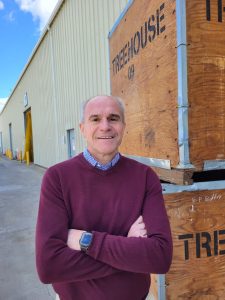
Q. How’s that going?
It’s going well. We are changing the leadership, bringing in some new people, such as a vice president of finance. I’ve been managing leadership teams for a while, and I like to have a diverse team. This diversity is not only about gender or certain attributes but also the way people think. I’m managing people who have devoted 20 to 25 years to this company and inviting in some new people, to form the best team in the industry. Treehouse will strive for success. Having said that, we need to communicate why we are planning to make these changes and how they’ll move us to our goal.
Q. Treehouse is part of a coalition of industry innovators known as The Almond Project, which in March received the New Hope Regenerative and Sustainability Award. What do this farmer-led partnership and the award mean for Treehouse?
The Almond Project is a multi-year initiative to promote sustainable almond farming methods. It’s very nice to have won this recognition with our other five project partners. I’ll be honest: One of the reasons I joined Treehouse was because of this project. It’s unbelievable how much this movement could benefit not only the almond industry but other industries as well. It’s meaningful for all of us, for the environment and for the communities that rely on agriculture. We want more people to join us in this movement.
Q. Can you talk about your “Where to Play, How to Win” plan?
It’s a strategic framework we’re putting together to help us move toward becoming an industry powerhouse with more value-added products and greater innovation. It’s going to describe how we can leverage sustainability together with current and new customers, grow into new geographies, target new segments and so on. This is where we’re going. We’ll present the first draft of the “Where to Play, How to Win” plan to our board in May to explain how we can structure Treehouse Almonds to achieve its transformation and become the No. 1 supplier to almond customers worldwide.







